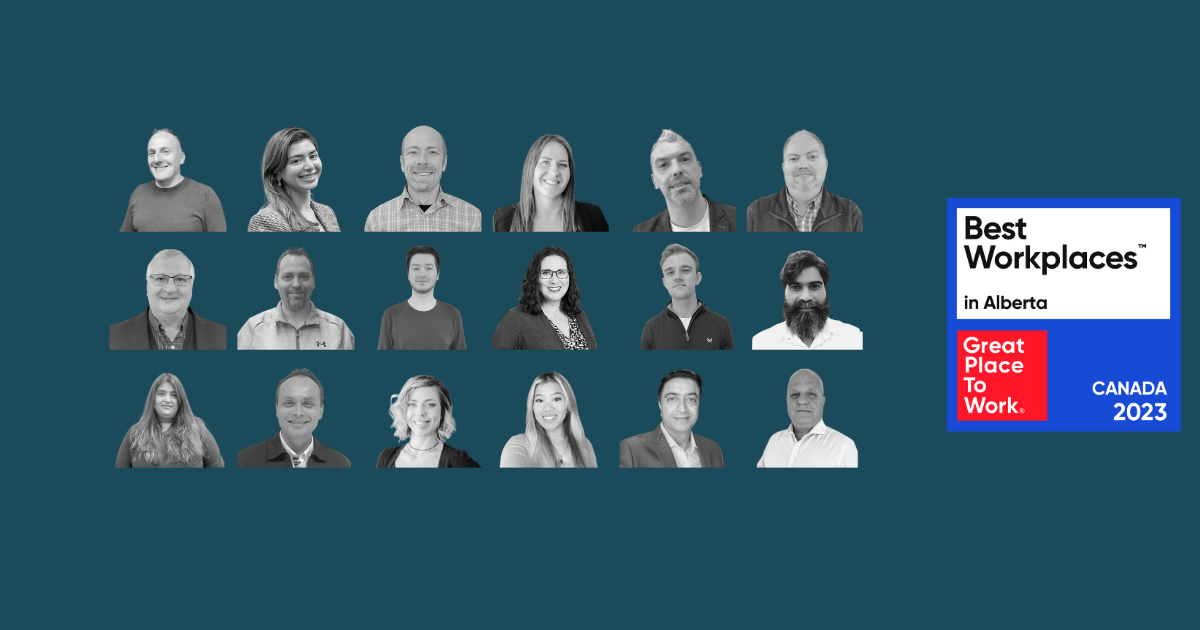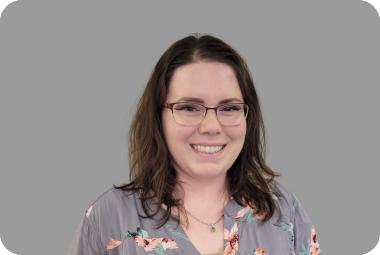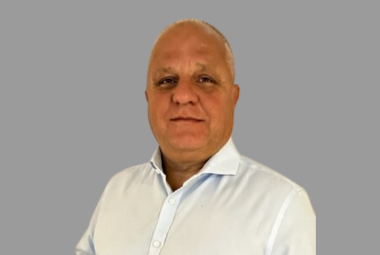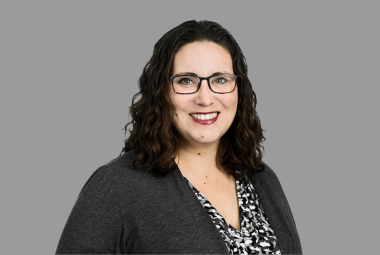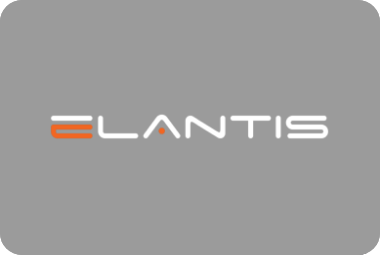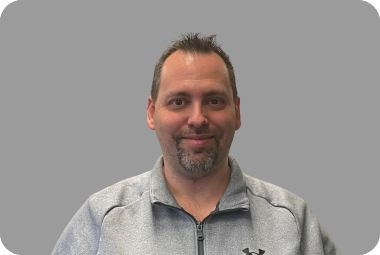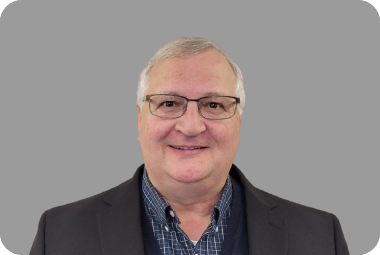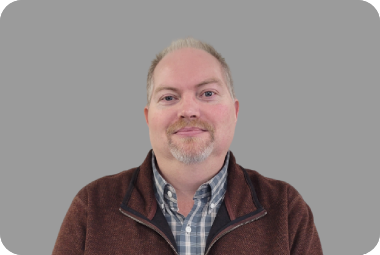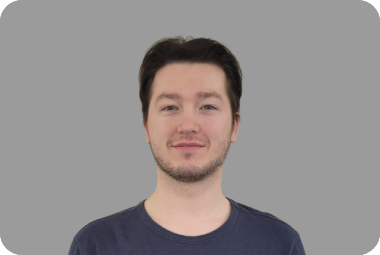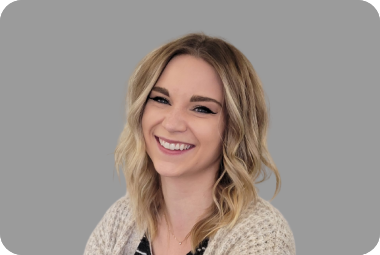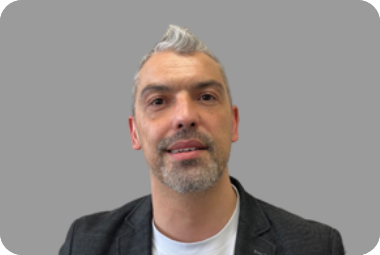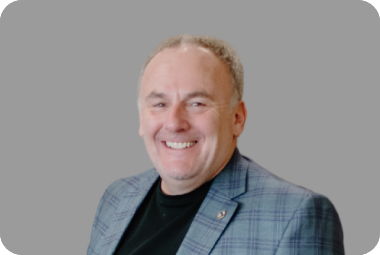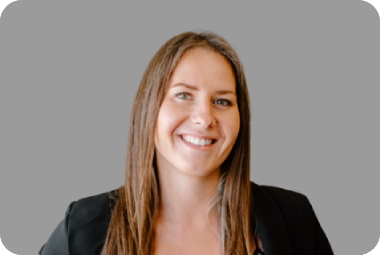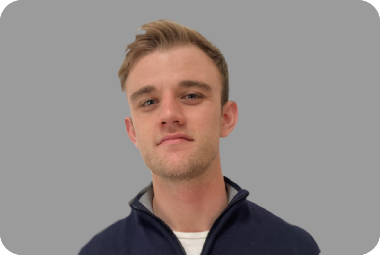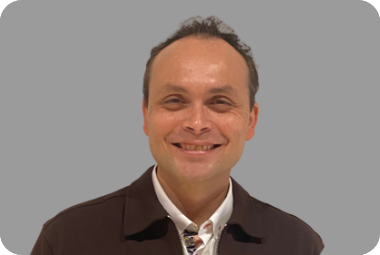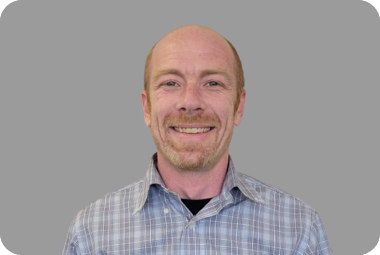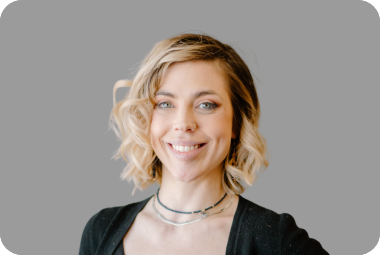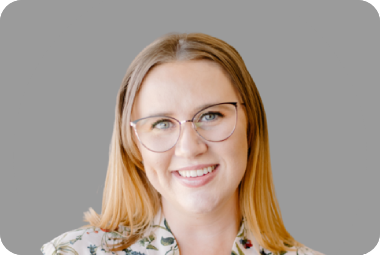This month, we’re shining the spotlight on Kristopher Panchuk, Solution Specialist at Elantis. Kristopher’s interest in technology started in graphic design and eventually led him to develop a passion for the Microsoft Power Platform. In this interview, Kristopher shares his unique approach to embracing challenges and prioritizing quality over anything else. He also shares his number-one learning method that trumps what can be found on Google. You are in for a treat as Kristopher graces us with his quick wit and vast vocabulary.
Andrea Nwobosi: Welcome, Kristopher! This is your time in the spotlight. I’m so excited to interview you this month to learn a little bit more about you, your career in IT, and what brought you to Elantis. So welcome and thanks for being here.
Kristopher Panchuk: Thank you, Andrea. It is good to be here and in your esteemed interview room.
Andrea: Thanks, Kris. Let’s start at the beginning. What sparked your interest in technology and in IT?
Kristopher: There have been a lot of instances where I could pinpoint an event on there. Growing up when I was maybe a little younger looking than I look right now, I was always sort of drawn to computers. Computer class was kind of my therapy. You’d always find me kind of in there twiddling, tweaking, and usually playing around with people’s faces in Photoshop. We’ll come to that later, I guess. It sparked some aptitude and it started in graphic design. There was a phase where I wanted to do 3D modeling and had some very minor success in school with that. Then it turned to this darn Flash project that I was working on when I was in the 11th grade at the time. It was to make a cute little Flash game and I don’t recall ever being that stuck and discouraged on a thing in my entire life. So, years later when I was trying to pick my darn career, I harkened back to that traumatic project and I decided, OK, well I really screwed the pooch on this one so let’s try to work on that a little bit.
Andrea: Interesting. So, your career and your interest in technology was kind of sparked from (I’m not going to use the word “failing”) but sparked from, perhaps, a challenge and you thought, “I want do more of this.”
Kristopher: Partially challenged, partially spite, and a little bit of a desire to figure something out. There’s one day I recall, and I’ll spare you the gory details of that day because it’s forever etched in my memory. It was very much a, sit me down in front of the computer and here’s every program that you could go and pick a future. I started to gravitate towards that because technology and I had always more or less gotten along. Sometimes it’s a love/hate relationship, but that’s just the nature of IT in general.
Andrea: That’s great. Tell us a little bit about your current role at Elantis and what you do here?
Kristopher: I occupy the role of a Solution Specialist, which is a vague job title at the best of times, but my role is more distilled down to the development, deployment, and maintenance of Microsoft Power Platform applications. So that’s Microsoft Power Apps, Power Automate, and on occasion (luck providing), Power BI. I’m in charge of developing, maintaining, occasionally fixing—actually, more often than not, fixing—and just generally being a subject matter expert on this particular branch in our development stack.
Andrea: What does your typical day-to-day look like in your role?
Kristopher: Usually starting in DevOps, everything gets driven out of there. Determining day-to-day tasks, action items that need addressing, and then just taking the elevator down to the code mines and see where that takes us. On a good day, I’ll start the day looking at, “OK, what do I need to do?” and then I will distill it down and just start building.
Andrea: What drew you to Elantis or how did you find Elantis? How did that all start?
Kristopher: I used to work at a great job. I was a full stack developer at one of Elantis’ old clients. I had a pretty good gig there. Everything was kind of working out well, but I felt as though I wasn’t in a position where I was able to really grow, as I was essentially the senior-most expert on a lot of the stuff there. So, there wasn’t really a place where I could be mentored; I was doing more mentoring. Which is valuable in and of itself, but I felt that I was falling behind the curve a little bit and wasn’t really settling in my position as much as I would want to, and I wanted an opportunity to grow. So, one day my manager sends me a link and says, “Hey, I saw this might be a good fit. Do with it what you will.” And I said, “OK, well it’s a little weird that an internal person is sending me this, but OK fine, I’ll take a look.” Then I said to myself, well right now I have something pretty good in my life with this current position. But I’m going to gamble it in the hopes that I get something great. That led me to interviews and meeting the individuals who interviewed me at the time, who are unfortunately no longer with the company. My jokes must have run them out of the system and then here I am. So, it was definitely a desire to be challenged once again and find some growth because my career in IT consulting started before Elantis a little bit and I would be lying if I said I didn’t crave a little bit of that again. So maybe it was harkening back to the days long gone pre-pandemic and maybe it was just a desire to learn and grow. Only time will tell which one it really was, but it could be both. I’m not against arguing that.
Andrea: So, what does that growth look like for you? I guess the question phrased another way might be, how do you stay on top of your game? How do you continue to grow? How do you continue to prioritize your professional development? What gives you that edge?
Kristopher: As a developer, I’ve always been a little bit outside the usual demographic that occupies the role. I’m a little more on the extroverted side, a lot more loud and generally higher on the scale of empathetic than a lot of other individuals who typically—and I do stress the word—typically occupy that role. I tried to eschew the stereotype of the basement dwelling keyboard warrior that just pumps out code at a mile a minute. What sets me apart is that I’m always trying to put the user experience first. Trying to make sure that people are happy with the things that I built. At least striving to that at the core and anytime that something goes wrong it goes right up in the database in my head where I have who knows how many errors that I can quickly remember, recall, and diagnose just off the top of my head. If something has gone wrong, there’s a good chance I’ll know how to not make it go wrong again, and I find that is a powerful skill to have. So, drive it from the customer. Figure out what might have gone wrong, why it went wrong, and how to stop it from happening again. So, it’s a lot of trying to be proactive about catching these things from getting stuck in a reactive state.
Andrea: That’s amazing. Just that growth mentality and the fact that you’re able to retain all that information, all that experience and be able to apply it moving forward is fantastic.
Looking back, what moment in your career are you most proud of?
Kristopher: That’s a good one. So, years back in my old consulting role, I occupied the title of “the only developer in house”, which was a whole new level of fun. I had a Business Analyst that I worked with at the time who was also very, very good and of whom I miss quite dearly. Throughout my time at that company, you kind of had to be a bit of a self starter when there wasn’t a whole lot of stuff coming your way. My proudest moment was when one day, the whole line of business for that company was a lot more ticket based and a lot more help desk based, IT infrastructure, support, and stuff like that. So basically, take our current stack and flip it upside down. So managed services’ gigantic projects are like three people. So, the volume of tickets coming in was instead of a couple dozen, it was more like hundreds. The steps to take a ticket from “we’re working on it” to “we did the thing” to “work closed” had to be properly documented and vetted. The dispatchers in charge of making these tickets go from “we’re ready to close” to “it’s closed” had to go through a pretty lengthy quality assurance process to make sure that happened. It required a lot of clicking, a lot of manual stuff, a lot of looking at really tiny fields on an even tinier screen in software that looked a little bit like a crazy Excel spreadsheet at the best of times.
So, my first breakout success in Power Apps was building a delightful app that I nicknamed “Dyson” because it cleaned up the ticket boards and this app turned what was a two-hour a week task into two minutes. It would automatically display all the ticket info that you would need to look for in multiple screens on one screen with a handy little yes and no button. If you click no, they got fired back to whatever tech was working on to say hey, you missed a spot. Or you would be able to just pass it off and the ticket would get closed and everything kind of went hunky-dory from there. So that one still lives pretty rent free in my head as that was a really cool app to build. I try to reference and look at that whole user experience that I was able to build because that technically wasn’t what the service manager asked me at the time. I went way above and beyond what he wanted, but it was all in the name of, how are we going to have it so that the people using this app have the best experience they can have. That’s the proudest moment I’ve had. Looking forward to maybe building something like that in the future here.
Andrea: What challenge have you faced and how do you typically overcome any challenges that come your way, Kris?
Kristopher: When faced with challenges, the only way to tackle a problem at any given time is to look at it as a bunch of little problems. There is no problem that is so big that it cannot be broken down. When you break it down, suddenly it’s not so scary anymore. You can look at it from a different point of view. People always love to say, “Let’s look at the big picture,” but the big picture is kind of scary. When you stand back and look at it, it is now daunting. It is now looming over you with a silhouette that can steal your soul away. What I’m adept at is taking these big problems, splitting them up, and asking, “OK, what can I do in this given moment to make the difference that we need to get things across the line?” Because one of the best pieces of advice that I ever got years back was that, there’s no point really worrying about things that we can’t control because your focus elsewhere can make all the difference.
Andrea: That’s great advice and such a great perspective on how to tackle challenges because we get them every day.
Kristopher: We live that lifestyle. We’re running on this treadmill day after day.
Andrea: You’re right, breaking it down makes it seem a lot less daunting, more manageable, and that you can do something about it. So, thank you for sharing your perspective on that.
In terms of getting up to come to work here at Elantis, what motivates you each day?
Kristopher: This is a twofold answer. First off, I would say the challenges that I face at work are also opportunities. A development project is a lot like a puzzle, so all the pieces kind of have to fit together to make your solution but the thing with development is you get to make the pieces. So, you’re making a jigsaw puzzle, but you get to choose how things fit together and can have things start clicking together bit by bit by bit. When you back up and see that big picture, suddenly it’s no longer a challenge anymore—it’s a triumph. That’s what I love to live for.
Second (and many of these employee spotlights highlight this), there is absolutely nothing in this whole darn world that I would not do for this team that we have here. A lot of times I get out of bed and say, “Ugh!” Mostly because I haven’t slept enough but also because oftentimes, the challenges are daunting. But the why behind why I choose to go and face them head on is because everybody here, would do the exact same thing for me.
Andrea: Very well put, Kris.
Kristopher: Was it the ‘UGH’ that did it? [ha ha]
Andrea: Yes! Back to my question about what growth looks like for you and how you keep your edge…Are there any books, websites, blogs, or resources that you turn to when you’re looking to learn?
Kristopher: In the IT world, it’s very easy to say that we look at forums, websites, and Stack Overflow. We’re very adept at Googling our problems but that’s not quite the answer that I want. What I would say is practice. To be the sharpest tool in the shed, you have to have that honed edge. You hone the edge by doing the thing. So oftentimes, if I need to solve a problem, I don’t necessarily just Google it, I’ll build a little demo. I’ll put together a little proof of concept, just a couple of text boxes and a button on the screen that does X. Keep your skills sharp through practice rather than just gospel that you read online. Being able to find the information is important. Being able to find that information without looking it up is also equally important.
Andrea: There’s nothing like that hands-on learning, right?
Kristopher: Yeah, especially in the Power Platform world, which changes every second week. I will never be able to recommend a book to buy because that book will be out of date in no time. Same with websites, same with documentation. Documentation changes all the time. I can look up solutions to Power problems that I had five years ago that aren’t necessarily relevant anymore because either a) there’s a better way to do it, or b) that feature has been deprecated and removed and you can’t do it anymore. So, develop the intuition to know how to solve the problems and where things come from. Don’t just rely on the error code and say, yep, that’s broken, I’ll just look it up. That’s not a great way to look through things. Rely on what’s up “here” first, then apply that.
Andrea: I think that’s a really great approach.
You’ve shared a lot of insights and a lot of great approaches and perspectives, but what would you say would be the top three things that you’ve learned since moving into an IT role? If you could go back in time, what would be three pieces of advice that you would tell your younger self?
Kristopher: First line of advice I would give is that, don’t simply chase perfection because perfection is nothing more than a lot of little things done well. I would also tell myself that schedule is not necessarily the king; quality is and never compromise on that. The third, making bad jokes in front of a roomful of lawyers that are your clients is probably not the best move. That room full of blank stares kind of lives rent free in my head, and that’s definitely something I would have gone back to try to avoid.
Andrea: My last question for you, Kris, is what is next for you in your career?
Kristopher: I get that question a lot and right now the goal is to keep on doing my best to produce quality work. That I may hopefully inspire new entries to the company that hey, this is how we do things, here’s how we do things right. Power Platform doesn’t exactly have a gigantic list of best practices. There are no ten commandments of app development for them. A lot of the stuff is very free form and kind of jazzy. So I want to kind of slowly, and this is when I’m ready and I don’t feel I’m there yet, start moving towards advising everybody else here on how things are done and kind of jumping in and out of projects in sort of a higher, not necessarily architect level but at least being in the trenches with everybody else to make sure that I can help drive them and mentor them towards that success they need. Once I feel that I’m ready. But I don’t have a beard nearly thick enough to stroke for that, and that’s not happening anytime soon.
Andrea: Well, that’s something we can all look forward to then I guess is seeing you grow that beard and step into that role!
Kristopher: That’s definitely not something to look forward to and frankly you should be concerned because either I have given up or I’m malnourished: one of those two.
Andrea: This has been fun. Thank you so much, Kristopher, for sharing your insights today. It’s been wonderful to learn a bit more about you, your career, and the bright future that you have ahead of you. So, thanks so much.
Kristopher: Good grief, I hope it’s bright.
Andrea: Thanks, Kris.
Kristopher: Pleasure.


